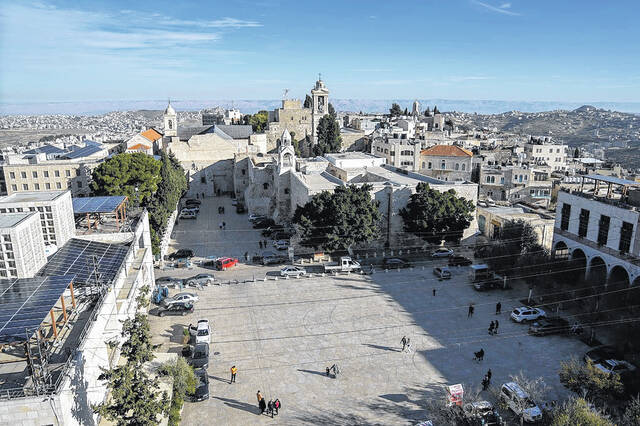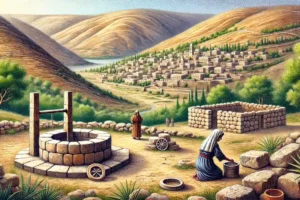
Bethlehem: The Birthplace of Jesus and David
Bethlehem, a small town in Judea, holds significant historical and theological importance in the Bible. Known as the birthplace of Jesus Christ and King David, Bethlehem is central to the Christian faith and biblical history.
Quick Facts:
- Birthplace of Jesus: Jesus Christ was born in Bethlehem, fulfilling the prophecy in Micah 5:2 (Matthew 2:1).
- Birthplace of David: King David, Israel’s second king, was born in Bethlehem (1 Samuel 16:1).
- Rachel’s Tomb: The matriarch Rachel was buried near Bethlehem (Genesis 35:19).
- City of Bread: The name Bethlehem means “House of Bread” in Hebrew.
- Location: Bethlehem is located about 5 miles south of Jerusalem.
Historical and Biblical Significance
Birthplace of Jesus:
Bethlehem is most famous as the birthplace of Jesus Christ. According to the Gospel of Matthew, Jesus was born in Bethlehem of Judea during the time of King Herod (Matthew 2:1). This event fulfilled the prophecy from Micah 5:2, which stated that a ruler would come from Bethlehem. The nativity story, with the shepherds, wise men, and the star of Bethlehem, is central to the celebration of Christmas and Christian theology.
Birthplace of King David:
Bethlehem is also the birthplace of King David, Israel’s beloved second king. David was anointed by the prophet Samuel in Bethlehem (1 Samuel 16:1-13). His connection to Bethlehem is significant because Jesus, referred to as the Son of David, was also born there, linking the messianic prophecy to David’s lineage.

Rachel’s Tomb:
Another significant biblical event associated with Bethlehem is the death and burial of Rachel, Jacob’s wife. Rachel died giving birth to Benjamin and was buried on the way to Ephrath, which is Bethlehem (Genesis 35:19). Rachel’s Tomb remains a significant site for Jewish, Christian, and Muslim pilgrims.
Name and Meaning
The name Bethlehem means “House of Bread” in Hebrew. This name reflects its fertile surroundings and agricultural heritage. The association with bread also has theological implications, as Jesus, born in Bethlehem, referred to Himself as the “Bread of Life” (John 6:35).
Location and Geography
Bethlehem is situated about 5 miles south of Jerusalem in the Judean hills. Its proximity to Jerusalem made it a strategic and accessible location throughout biblical history. The town’s landscape includes rolling hills and valleys, which have been cultivated for agriculture since ancient times.
Modern Bethlehem
Today, Bethlehem is a vibrant city with a diverse population, attracting millions of visitors and pilgrims annually. The Church of the Nativity, built over the traditional site of Jesus’ birth, is a major pilgrimage destination. The city also celebrates various cultural and religious festivals, highlighting its rich history and heritage.
Conclusion
Bethlehem’s significance in biblical history and Christian theology is profound. As the birthplace of Jesus Christ and King David, it is a symbol of divine fulfillment and promise. Its rich heritage, highlighted by significant biblical events and prophecies, makes Bethlehem a cornerstone of Judeo-Christian tradition and faith.



